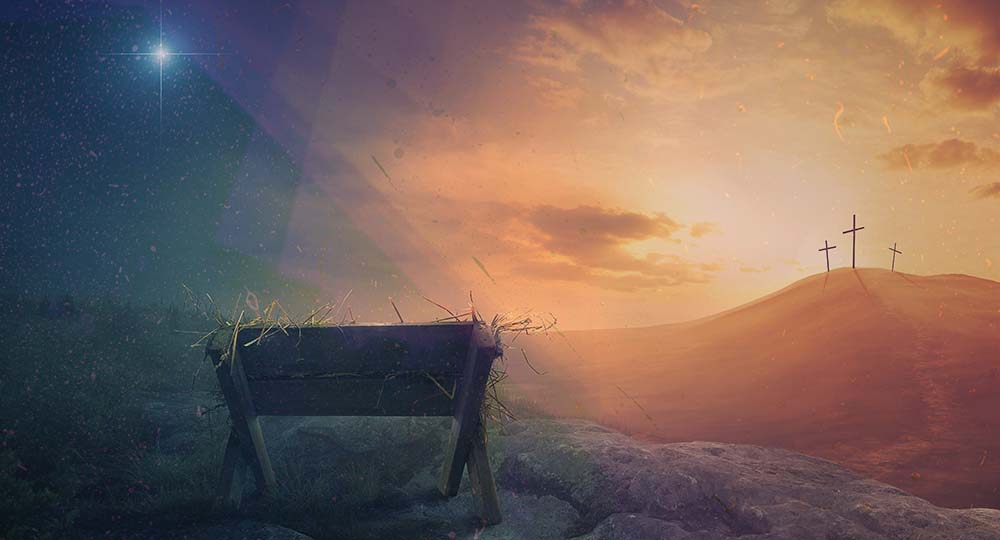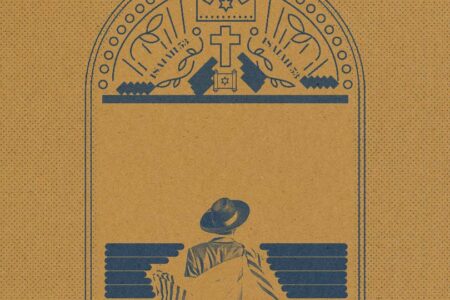God’s Awesome, Immutable Plan
Death, resurrection, substitutionary atonement. From eternity past, they’ve all been part of God’s grand design to redeem us.
In the 1980s, an action-adventure television series used a catchphrase that has long outlived the show: “I love it when a plan comes together!” So many times, our plans fall apart. We try diligently to orchestrate events and manage details; but something unforeseen gets in the way, and our project doesn’t turn out as we intended.
That never happens to God. His plans always proceed exactly on schedule and precisely how He formulated them. He tells us, “I work, and who will reverse it?” (Isa. 43:13). It was always God’s plan that His Messiah be the perfect Lamb, a substitutionary sacrifice for our sins (Rev. 13:8). Little by little, He unfolded His plan in Scripture and unveiled it to His Chosen People in its entirety in Isaiah 53.
The Ultimate Substitute
Through the prophet Isaiah, God revealed Israel’s Messiah would die as an offering but be raised from the dead: “Yet it pleased the LORD to bruise Him; He has put Him to grief. When You make His soul an offering for sin, He shall see His seed, He shall prolong His days, and the pleasure of the LORD shall prosper in His hand” (v. 10).
This plan is first revealed in Genesis 3:15: “And I will put enmity between you and the woman, and between your seed and her Seed; He shall bruise your head, and you shall bruise His heel.” The word bruise means to “crush” or “wound.” The serpent is Satan (Rev. 20:2), and the Seed is the Messiah.
Though the Messiah will die, the wound will be the equivalent of a blow to the heel because He will arise victorious from the grave. However, in dying, the Messiah will crush the serpent’s head, a fatal blow that eventually will destroy “him who had the power of death, that is, the devil” (Heb. 2:14).
This death-and-resurrection theme permeates the Old Testament, as evidenced by the fact that, when the resurrected Jesus walked with two men on the road to Emmaus, He showed them how the Hebrew Scriptures pointed to it:
“O foolish ones, and slow of heart to believe in all that the prophets have spoken! Ought not the Christ [Hebrew, Mashiach] to have suffered these things and to enter into His glory?” And beginning at Moses and all the Prophets, He expounded to them in all the Scriptures the things concerning Himself (Lk. 24:25–27).
The Bible teaches that humanity is under the curse of death, but God will accept a substitutionary death as payment. For example, prior to the Israelites’ Exodus from Egypt, God sent a plague to kill all firstborn Egyptians and Jews. However, if they offered a perfect, spotless lamb and applied the blood to the lintel and doorposts of their homes, He would pass over them; they would be saved (Ex. 12:1–30).
In Leviticus, the Law details exactly what needed to be sacrificed according to what sin was committed. The trespass offering (5:15) was unique in that it could be brought for a variety of sins. It satisfied an individual’s guilt and set him free. The main idea behind the trespass offering was to satisfy the demands of a just, holy, and righteous God.
For hundreds of years before Jesus’ birth, Jewish people had offered sacrifices. Yet no animal sacrifice, no matter how humbly given or how spotless the animal, could atone for human sin. It covered sin temporarily but could not eliminate it. The entire sacrificial system pointed out that, as sinners, we deserve to die.
Isaiah 53:10 explains God’s plan of redemption: “Yet it pleased the LORD to bruise Him.” It was God’s intent to put Jesus to death, and it pleased Him when His plan came together. Why? Because Jesus’ death provided the way for humanity to be redeemed from sin by faith. The Messiah of Israel became the ultimate Servant and substitutionary sacrifice for the sins of man.
God planned every detail of Jesus’ life, including His Jewish parentage, when He would be born, where He would be born, when He would die, and how He would die. Jesus wasn’t a misguided man who claimed to be God. He was the divine Son of God—the Second Person of the triune Godhead—sent specifically to die in our place (Rev. 13:8). He was the final trespass offering for all mankind.
Scars of Victory
Like every man the Romans crucified, Jesus died and was buried: “He was cut off from the land of the living” (Isa. 53:8). But unlike any other man anywhere, He would rise from the grave: “He shall see His seed, He shall prolong His days” (v. 10).
Jesus’ sacrifice was acceptable to God, and the proof was His resurrection. “He shall prolong His days” speaks of His resurrection, and “He shall see His seed” refers to those who will become His children by faith (Jn. 1:12).
Jesus had an opportunity to skip the cruel death of the cross. Satan told Him if He would simply bow to him, he would give Jesus all the kingdoms of the world. It was a legitimate offer. Satan received power over Earth at the fall of man, which is why Jesus called him “the ruler of this world” (Jn. 12:31). But Jesus replied, “Away with you, Satan! For it is written, ‘You shall worship the LORD your God, and Him only you shall serve’” (Mt. 4:10).
Consequently, Isaiah 53:10 ends with “the pleasure of the LORD shall prosper,” or He will be blessed because of His obedience. Jesus, who was fully God and fully man, “humbled Himself and became obedient to the point of death, even the death of the cross” (Phil. 2:8).
Therefore God also has highly exalted Him and given Him the name which is above every name, that at the name of Jesus every knee should bow . . . and that every tongue should confess that Jesus Christ is Lord, to the glory of God the Father (vv. 9–11).
Isaiah 53:11 says the Messiah will look back at His sacrifice and be satisfied. Though He will bear the scars for eternity (Rev. 5:6), they will be a reminder of His great love for us and His triumphant victory over sin. In glory we will fall down and proclaim, “Worthy is the Lamb who was slain” (v. 12).
The Gift of Freedom
In the Millennial Kingdom, the Messiah will inherit the world as His portion, and everyone will worship Him: “I will divide Him a portion with the great, and He shall divide the spoil with the strong” (Isa. 53:12).
In ancient times, when a king won a battle, he divided the conquered land and its spoils, taking the best for himself. Jesus will receive the world “because He poured out His soul unto death, and He was numbered with the transgressors, and He bore the sin of many, and made intercession for the transgressors” (v. 12).
Jesus died a painful, gruesome death, crucified between two robbers, as God “laid on Him the iniquity of us all” (v. 6). Today He sits “at the right hand of the throne of God” (Heb. 12:2). “Therefore He is also able to save to the uttermost those who come to God through Him, since He always lives to make intercession for them” (7:25).
God’s plan from the beginning was to impart His own righteousness to everyone who sincerely accepted the sacrifice of His Son as the sole means of atonement for his or her sins. When we repent and place our faith in Christ, God applies the blood of the atonement to us. Guilty sinners though we are, God declares us not guilty; and we are free. Our salvation is a gift from God.
God orchestrated His plan exactly as He outlined it to Isaiah 700 years before Jesus was born. Someday, as believers, we will inherit our portion and rule and reign with our Lord and Savior Jesus Christ. Don’t you just love it when a plan comes together!









POWERFUL TEACHING, SCRIPTURALLY SOUND. THANK YOI SO MUCH FOR ALL THE REVELATION, UNDERSTANDING, KNOWLEDGE AND WISDOM IMPARTED. BLESSINGS